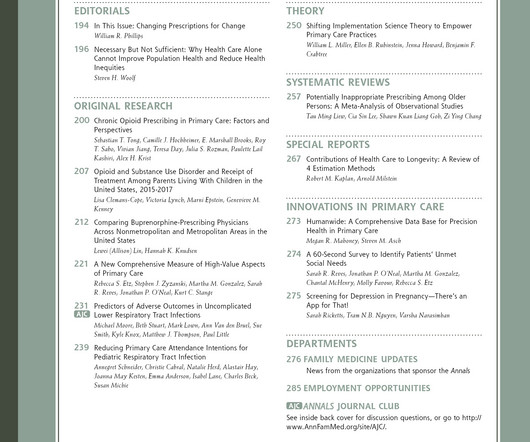Ambulatory Behavioral Health Referral Patterns in the Setting of Chronic Medical Conditions [Behavioral, psychosocial, and mental illness]
Annals of Family Medicine
NOVEMBER 20, 2024
Early identification and intervention in behavioral aspects of chronic diseases leads to improved function with decreased healthcare utilization, yet we know little about referral patterns for behavioral support of chronic disease. 88% (n= 11,483) of BH referrals were created for the management of a mental health condition.

























Let's personalize your content